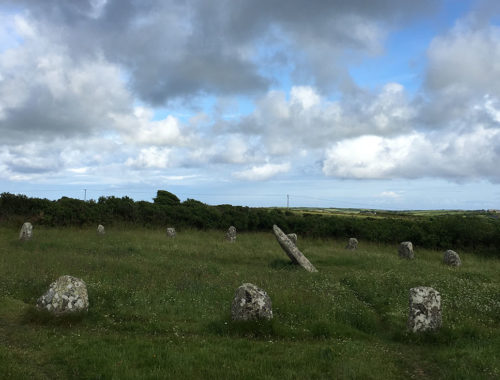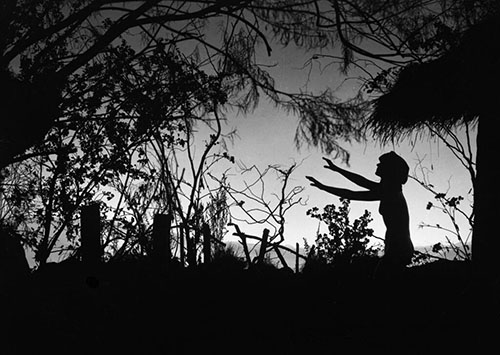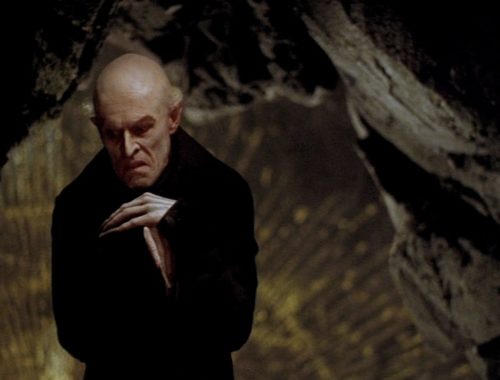Ill-Advised Party Discussion Topic #56: Science and Religion
I received this question recently:
I am a scientist to the core. How would you advise someone who is trying to believe again that there’s more than science out there or that [science and religion] sometimes work hand-in-hand?
Choosing to walk a spiritual path pretty much requires finding an answer to this question for yourself—one you can live with and that feeds, sustains, and resonates with you. So consider this post simply a starting point for exploration rather than a concrete answer. I wouldn’t want to rob you of the experience of sorting this out for yourself. Or not, as the case may be.
I love this question, but in my opinion, the fundamental problem with it is its underlying assumption that science and religion must be at odds. I think this is a false dichotomy brought about by rigid thinking about what science and religion are and what their value and purpose are.
So often I see an argument from the science “side” like this: Logical = good, illogical = bad, religion = illogical, therefore religion is bad/pointless/harmful/ridiculous/contemptible, and, by extension, people with spiritual beliefs are not just wasting their time; they’re stupid. And the other “side” is no better, with climate-change deniers, people who think they can cure cancer with crystals, school boards demanding creationism be inserted in textbooks because evolution makes people question their faith, and Chick tracts saying the earth is only 6000 years old and showing dinosaur-riding humans, as if The Flintstones were a documentary. This inflexibility on both ends serves no purpose, other than to make people feel smug and self-righteous—attitudes that have no place in either science or religion.
Although they go about things very differently, in my view science and religion spring from the same source: a sense of wonder and deep curiosity about the world, and a desire to understand it better and express that learning to others. Einstein said, “The most beautiful thing we can experience is the mysterious. It is the source of all true art and all science. He to whom this emotion is a stranger, who can no longer pause to wonder and stand rapt in awe, is as good as dead. His eyes are closed.” It seems more important to me to focus on the similarity of the underlying desires behind science and spirituality and how they can inform each other rather than deciding they irreconcilable, with one utterly right and the other utterly wrong.
We can have the best of both science and spirit if we let go of the idea that things that aren’t logical or supported by scientifically rigorous double-blind studies are somehow less important, useful, or valuable. Anthropologist Bronislaw Malinowski basically said (I’m way over-simplifying this) that culture and religion meet the needs of individuals—especially in times of crisis—and by meeting the needs of individuals, they meet the needs of society as a whole. Essentially, the value of religion is not in whether it is “true” or not, but in what it does for the person participating in it.
Humans see symbols and meaning in everything from DNA to their breakfast cereal. Multiple realities can be “true” and meaningful to individuals from a relative, if not an objective, point of view. It doesn’t mean these realities are universal or scientifically verifiable, but it doesn’t mean they are irrelevant or that an insight should be rejected outright because it can’t be recreated or measured.
But as spiritual people living in a world of science, we need to be reasonable in our flexibilty—to be rationally irrational. The Dalai Lama himself said about Buddhism and science, “If science proves some belief of Buddhism wrong, then Buddhism will have to change. In my view, science and Buddhism share a search for the truth and for understanding reality.” The late Joseph Campbell, who wrote extensively on comparative mythology (and was not remotely Wiccan, but is still my go-to guy for this kind of discussion), also indicated that flexibility and reason are key, “Every religion is true in one way or another. It is true when understood metaphorically. But when it gets stuck in its own metaphors, interpreting them as facts, then you are in trouble.”
Wicca is well-suited to be compatible with—if not completely in sync with—science. Wicca’s focus is far more on orthopraxy (“right practice”) than orthodoxy (“right thinking,” or dogma). We don’t have to accept spiritual teachings or any religious book on faith alone, and we are encouraged not to evangelize or try to convince others we’re right. This gives us a great deal of freedom and responsibility to make our own decisions.
One of my favorite quotes from Campbell is, “I don’t have to have faith, I have experience.” I think that applies to many Wiccans (and scientists too). We try out practices and philosophies and decide for ourselves how to interpret, integrate, and use them—or not. This leaves a lot of room for dovetailing our spirituality with science and any other important learning we encounter.
For many Wiccans, science greatly enhances Wiccan practice and philosophy. Learning about the elements present in all life, for example, or that the golden ratio appears in both leaf patterns and architecture informs our quest to connect with nature and helps us feel like we are part of something greater than ourselves. Another great Campbell statement is, “The goal of life is to make your heartbeat match the beat of the universe, to match your nature with Nature.” Science is an extraordinary tool to help us understand how we fit into the greater scheme of our world. And scientists and Wiccans tend to have at least one important goal in common: preservation of the earth and its resources.
If the part of religion you struggle with is the idea of the existence of the gods themselves, remember that being a Wiccan doesn’t necessarily mean that you have to believe that the gods are autonomous entities. Although many Wiccans do believe that wholeheartedly, others believe that the gods are thought-forms, archetypes, or parts of our psyches, or that we and the gods co-create each other. And there are plenty of Wiccan atheists—people who find meaning and value in Wiccan symbols and rituals, but who don’t believe in the gods themselves. The gods can “exist” in many forms, in many ways, and we can gain insights from studying them, even if we don’t think they’re “real.”
As for magic, energy, and visualization, I can only tell you this: when I walk into a Wiccan circle, I make a conscious decision that in that sacred space, all things are possible. This frees my mind to see things in ways that I wouldn’t if I stuck to the rules of the mundane world. Like those Las Vegas ads, what happens in circle stays in circle, and circle reality doesn’t extend into the greater world (for me anyway). But what I take away from being open to that experience can be applied in any aspect of my life that I choose.
If you’re at all like me, you’ll address and re-address this question many times during your life. I think that exercise in itself can be extremely valuable.




